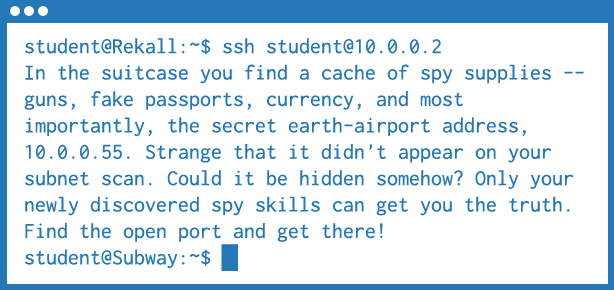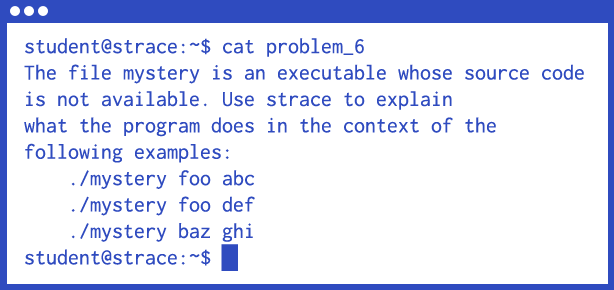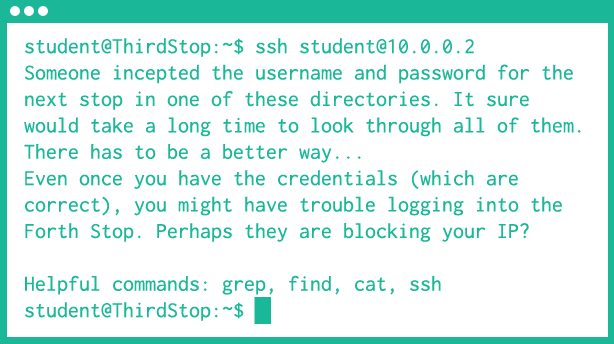
Teaching cybersecurity or computer networking in the classroom? Training for a CTF? Our suite of exercises can help supplement your training activities: lectures, labs, and team activities. EDURange provides rapid feedback to students and faculty, aiding in the assessment of student learning. By providing interactive, competitive exercises, it enhances the quality of instructional material while increasing active learning for students.
The EDURange framework has changed. We are no longer hosting an EDURange server on AWS. Instead, we provide the code on github.com/edurange/edurange-flask so that you can host your own server on a cloud or a laptop.
Instructors
Teaching networking or cybersecurity and need a tool to help supplement your classroom lectures? EDURange is flexible and easy to use.
Students
Are you interested in cybersecurity? EDURange scenarios are fun, challenging and provide a comprehensive understanding on a variety of topics.
Researchers
Want to know more about the effectiveness of cybersecurity exercises in the classroom? The tracking of analytics is core to EDURange's framework.
Developers
Have your own ideas for cybersecurity exercises? EDURange provides a great framework with flexible options for configuring VMs in the cloud or on your own hardware.
EDURange can help you to include cybersecurity exercises in your classes. It is easy to use, and easy for your students to sign up. Since it can run on the Cloud, there are no VMs or software to download or configure. You can use our scenarios, modify them, or even create your own. By practicing cybersecurity skills in a dynamic and customizable setting, students are rewarded by spending effort on thoughtful analysis, debugging, and reverse-engineering.
For questions on EDURange, email the project supervisor Richard Weiss,
Unfortunately, we do not offer any stand-alone scenarios. If you want to use EDURange, ask your instructor to sign up for an account. Here is a template e-mail to use.
To my favorite and most spectacular teacher ______________,
I have recently become aware of the fantastic cybersecurity exercise suite EDURange. In the interest of my education goals I
believe the use of EDURange's scenarios would complement your spectacular lectures like 0100 complements 1011. When you have moment,
please check out edurange.org.
Sincerely,
Your hard-working student ______________
See our publications on cybersecurity education.
The EDURange project is currently available from our GitHub. Set-up instructions can be found there. Keep in mind the project is still very much a work in progress at the moment. Contact us if you need any help getting started. Let us know if you are interested in contributing a new scenario to the EDURange suite.
EDURange Scenarios
Our central focus is on creating exercises, which we call scenarios, that support and nurture the development of analysis skills rather than memorized scripts, recipes, or standard command line and GUI settings for a particular tool. Though some scenarios revolve around using a specific tool, the main learning goal is the development of the analytical skills and understanding of the complex system which that tool acts upon.

Engaging
Whether through story-based design or the pursuit for the next checkpoint in a series of incremental challenges, our scenarios are fun and keep students absorbed. The intrigue of our scenarios help students stay actively interested in their own learning process.

Analytical
Not only do our scenarios pose challenges, but they do so in a way to encourage analytical thinking. Students learn how to develop their own building blocks to be further used as a scenario progresses. We also provide assignment questions and discussion questions to continue the investigative thinking post-scenario.

Supportive
While maintaining a balance between challenging and accessible, we provide students with suggestions and examples as they work through scenarios. Our student manuals also list helpful tools for each scenario.



